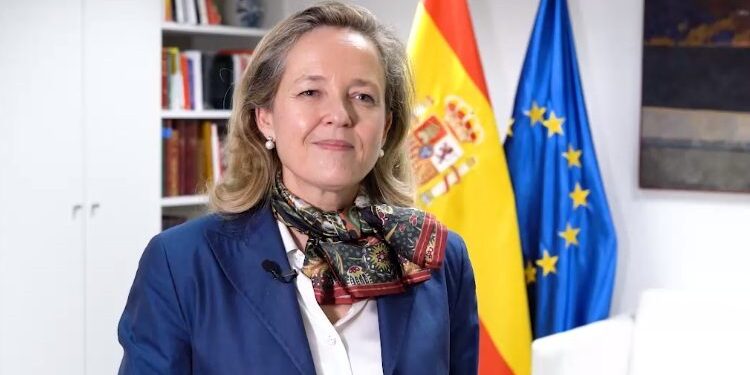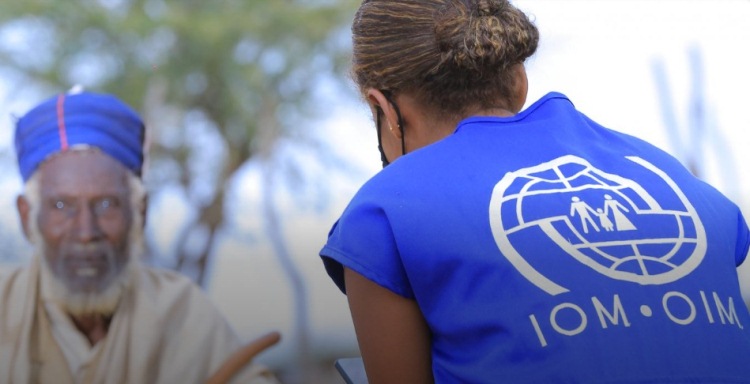The Diplomat
The First Vice-President and Minister of Economic Affairs and Digital Transformation, Nadia Calviño, yesterday defended the strengthening of the single currency and economic governance in the EU on the occasion of the twentieth anniversary of the launch of the euro.
On January 1, 2002, twelve EU countries adopted the euro as a “pocket” currency, in what was the biggest currency change in history, a step that represented a “very exciting moment and a huge challenge” and whose importance “we experience in the field of tourism, in the field of trade, every time we travel outside our borders,” Calviño recalled in a video released by the Ministry.
For this reason, according to the Vice-President, it is necessary to continue strengthening the single currency and the governance of economic policy coordination, “strengthening the entire pillar of fiscal policy coordination, moving towards a European Treasury, strengthening the role of the euro also in the international arena”.
Currently, more than 340 million people use the euro in 19 EU countries, with 27.6 billion euro banknotes in circulation worth approximately €1.5 trillion. The euro is currently the second most widely used currency in the world, behind the U.S. dollar. Apart from that, the EU is still trying to adapt the currency to new international challenges, such as the digitalization of the economy and the development of virtual currencies.
The euro has come a long way since the first discussions on an Economic and Monetary Union in the late 1960s, the Commission recalled in a statement. Concrete steps towards a single currency were first addressed in 1988 by the Delors Committee. In 1992, the Maastricht Treaty defined the criteria to be met by Member States in order to adopt the single currency, and, two years later, the European Monetary Institute (EMI) in Frankfurt began preparatory work for the European Central Bank (ECB) to assume responsibility for monetary policy in the euro area. As a result, the ECB became operational on June 1, 1998.
In 1999, the euro was launched in eleven member states as an accounting currency in the financial markets and was used for electronic payments. Finally, on January 1, 2002, Austria, Belgium, Finland, France, Germany, Greece, Ireland, Italy, Luxembourg, the Netherlands, Portugal and Spain exchanged their national banknotes and coins for euros. Slovenia joined the euro area in 2007, followed by Cyprus and Malta (2008), Slovakia (2009), Estonia (2011), Latvia (2014) and Lithuania (2015). Croatia is currently taking preparatory steps to join the euro area, which it plans to do on January 1, 2023, provided it fulfils all the convergence criteria.
The euro is the second most important currency in the international monetary system. Its stability and credibility have made it an international invoicing currency, store of value and reserve currency, accounting for about 20% of foreign exchange reserves. Sixty other countries and territories around the world, home to some 175 million people, have decided to use the euro as their currency or to peg their own currency to it. The euro is currently used for almost 40% of global cross-border payments and for more than half of EU exports.
Since the 2008 global financial crisis and the subsequent sovereign debt crisis, the EU has continued to strengthen and deepen the Economic and Monetary Union. “The EU’s unprecedented recovery plan NextGenerationEU will further improve the euro-area’s economic resilience and enhance economic convergence,” Brussels assured.
“A symbol of European unity”
“The euro is not just one of the most powerful currencies in the world. It is, first and foremost, a symbol of European unity,” said Ursula von der Leyen, president of the European Commission. “The euro is a symbol, the coming to fruition of a historic political vision, an ancient vision of a united continent with a single currency for a single market,” said, for his part, David Sassoli, President of the European Parliament.
“Despite the crises, the euro has proven to be resilient — a symbol of European unity and stability. And never has that been truer than during COVID-19,” said Charles Michel, President of the European Council. “Hundreds of millions of Europeans trust it and transact with it every day. It is the second most international currency in the world,” stressed Christine Lagarde, president of the European Central Bank. “Our response to the COVID 19 pandemic demonstrated that by sharing the euro we can achieve more collectively than we can individually,” said Paschal Donohoe, President of the Eurogroup.







